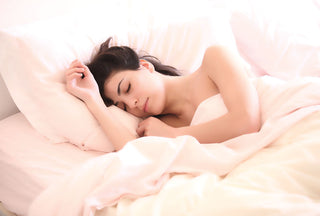CBD has shown potential as a sleep aid for many people, though individual experiences can vary. Here's how CBD may help with sleep:
- Anxiety Reduction: CBD is known for its anxiolytic (anxiety-reducing) properties. By reducing anxiety and promoting relaxation, CBD can help individuals fall asleep more easily.
- Pain Relief: For those whose sleep is disrupted by chronic pain or discomfort, CBD's analgesic (pain-relieving) and anti-inflammatory effects can contribute to better sleep quality.
- Stress Reduction: CBD may help lower stress levels, making it easier for individuals to unwind and fall asleep.
- Regulation of Sleep-Wake Cycles: Some research suggests that CBD may influence sleep-wake cycles, potentially helping individuals with insomnia or irregular sleep patterns achieve more regular sleep.
- Interaction with the Endocannabinoid System: CBD interacts with the endocannabinoid system (ECS), which plays a role in regulating various bodily functions, including sleep. By supporting the ECS, CBD may help maintain balance and promote better sleep.
Research and Evidence
- Studies: Some studies have shown promising results regarding CBD's impact on sleep. For example, a 2019 study published in "The Permanente Journal" found that CBD improved sleep scores in 66.7% of patients within the first month of use.
- Anecdotal Evidence: Many users report improved sleep quality and duration when using CBD, though these effects can vary based on individual factors such as dosage, method of consumption, and the specific cause of sleep disturbances.
Dosage and Usage
- Starting Low: It's recommended to start with a low dose of CBD and gradually increase it until you find the effective amount that helps with sleep.
- Timing: Taking CBD 30 minutes to an hour before bedtime may help with relaxation and sleep onset.
- Forms of CBD: Tinctures, capsules, and edibles are popular for sleep-related use. Tinctures, taken sublingually, may provide faster effects.
Considerations
- Consult a Healthcare Professional: Before starting CBD, especially if you have underlying health conditions or are taking other medications, consult with a healthcare professional.
- Quality of CBD Products: Ensure that you use high-quality, third-party tested CBD products to avoid contaminants and ensure accurate dosing.
While more research is needed to fully understand CBD's effects on sleep, current evidence suggests it may be a useful tool for some individuals in managing sleep issues.

